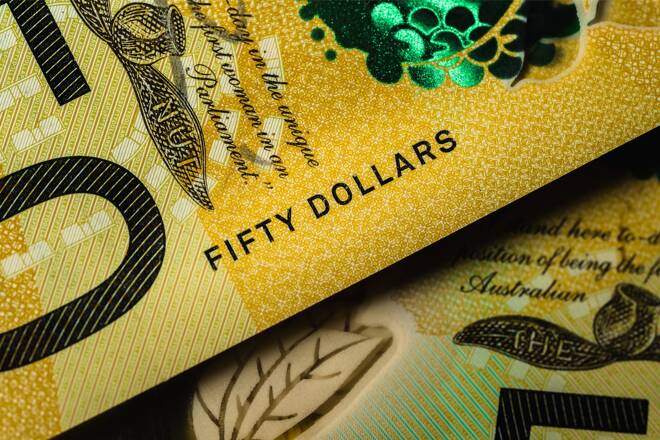Advertisement
Advertisement
Australian Dollar Forecast: AUD/USD Trends in Focus as RBA and US CPI Reports Loom
By:
Key Points:
- AUD/USD eyes inflation expectations for direction.
- RBA rate cut speculations could rise on weaker inflation data.
- US CPI data could move AUD/USD toward $0.67.
Australian Consumer Inflation Expectations in Focus
On Wednesday, September 11, Australian consumer inflation expectations will spotlight the AUD/USD pair.
Economists expect consumer inflation expectations to drop from 4.5% in August to 4.1% in September.
Softer-than-expected inflation expectations could fuel bets on a Q4 2024 RBA rate cut. Consumers delay purchases when they expect prices to fall, possibly dampening demand-driven inflation. A softer inflation outlook could push the AUD/USD pair down toward the $0.66000 level.
RBA Insights and RBA Rate Path
RBA Chief Economist Sarah Hunter could give insights into the central bank’s monetary policy during Wednesday’s Asian market session. Hints of a Q4 2024 25-basis point RBA rate cut could reduce Aussie dollar demand. A drop in inflation expectations could raise expectations of a Q4 RBA rate cut.
Expert Views on the RBA Rate Path
AMP Head of Investment Strategy and Chief Economist Shane Oliver recently remarked on the RBA rate path, stating,
“The resumption of share mkt weakness along with falling commodity prices & bond ylds is signalling concerns about the global economy the RBA can’t ignore. Just as the Fed has changed its tune significantly over the last few mths there is a high probability the RBA will do the same so the Australian money market’s continued pricing in of a rate cut by year end – a 0.25% rate cut is priced in with a 92% probability – may not be that outlandish, despite recent RBA guidance.”
Will the US CPI Report Raise Bets on a 50-Basis Point Fed Rate Cut?
With the AUD/USD highly sensitive to interest rate differentials between the US and Australia, upcoming US CPI data will be crucial. Economists forecast the annual inflation rate to soften from 2.9% in July to 2.6% in August.
Weaker-than-expected inflation figures could refuel investor expectations of a 50-basis point September Fed rate cut.
A more dovish Fed rate path would narrow the interest rate differential between the US and Australia, which may support an AUD/USD move toward $0.67000.
Expert Views on the US Labor and the Fed Rate Path
Shane Oliver also commented on the US Jobs Report, stating,
“US Aug payrolls +142k,
Short-Term Forecast: Bullish
Near-term AUD/USD trends will likely depend on the US CPI Report. Weaker-than-expected figures could overshadow softer Australian consumer inflation expectations, supporting an AUD/USD move toward $0.67. However, investors should consider monetary policy-related comments from the RBA and the Fed to gauge further moves.
Investors should monitor key economic data and central bank communications closely, as these factors may impact AUD/USD price movements. Monitor the real-time data, news updates, and expert commentary to adjust your trading strategies.
Stay updated with our latest views and analysis to manage exposures to the forex markets.
AUD/USD Price Action
Daily Chart
The AUD/USD remained below the 50-day EMA while holding above the 200-day EMA, affirming bearish near-term but bullish longer-term price signals.
A breakout from the 50-day EMA could indicate a move toward the $0.67003 resistance level. Furthermore, a break above the $0.67003 resistance level may bring the $0.67500 level into play.
Investors should consider the inflation numbers from Australia, the US CPI Report, and central bank commentary.
Conversely, a drop below the top trend line and 200-day EMA could signal a fall toward $0.66. Buying pressure could intensify at the top trend line. The 200-day EMA is confluent with the top trend line.
With a 14-period Daily RSI reading of 44.90, the Aussie dollar could drop below the 200-day EMA before entering oversold territory.
About the Author
Bob Masonauthor
With over 28 years of experience in the financial industry, Bob has worked with various global rating agencies and multinational banks. Currently he is covering currencies, commodities, alternative asset classes and global equities, focusing mostly on European and Asian markets.
Advertisement
